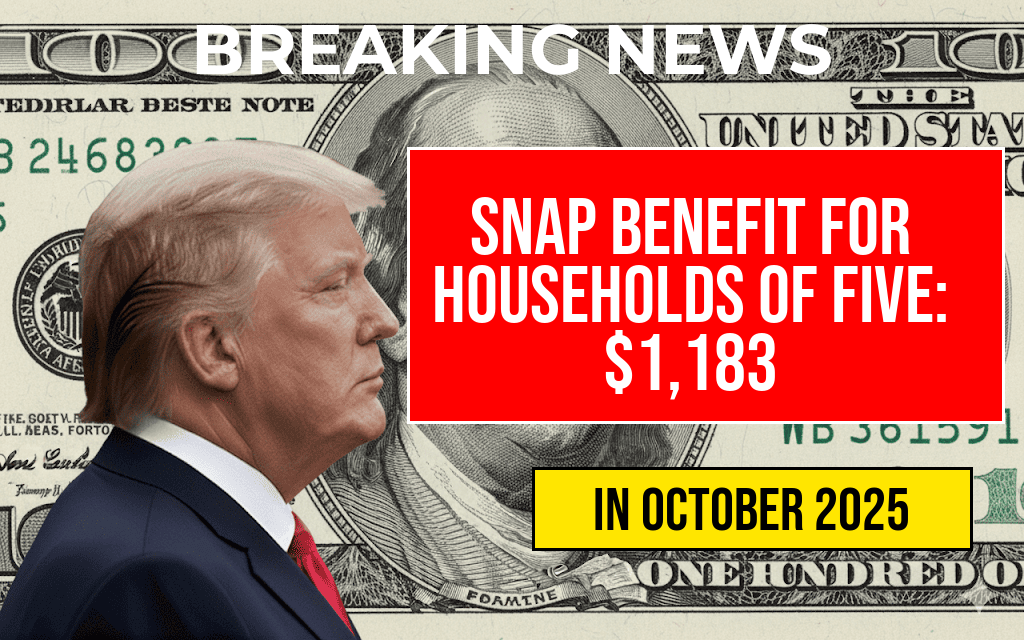Tipped workers across the United States are advocating for a $25,000 tax-free benefit, aiming to alleviate financial strain exacerbated by the COVID-19 pandemic and rising living costs. However, many of these workers face a paradox: by accepting this proposed benefit, they could inadvertently jeopardize their eligibility for the Earned Income Tax Credit (EITC), potentially losing over $1,000 in tax credits designed to support low-income families. This situation has sparked heated discussions among lawmakers, labor groups, and the workers themselves as they navigate the complexities of tax incentives and government support.
The Proposal for a Tax-Free Benefit
The push for a $25,000 tax-free benefit for tipped workers is part of a broader effort to provide financial relief in an industry that has seen significant upheaval. Advocates argue that this benefit could help restaurant employees, bartenders, and other service workers recover from the financial hardships of the pandemic. Many of these workers rely on tips as their primary source of income, which can be inconsistent and heavily influenced by economic conditions.
Understanding the Earned Income Tax Credit
The Earned Income Tax Credit (EITC) is a federal tax benefit aimed at assisting low- to moderate-income workers. It reduces the amount of tax owed and may result in a refund. For many eligible families, the EITC can significantly boost their annual income. However, the credit is based on earned income levels, and receiving additional benefits could complicate or reduce eligibility.
Potential Impact on EITC Eligibility
For tipped workers, the introduction of a substantial tax-free benefit could mean that their overall income increases, which might disqualify them from receiving the EITC. According to estimates, a worker earning $15,000 annually could lose approximately $1,100 in EITC benefits if their income exceeds certain thresholds.
- For a single filer with no children, the income limit for the EITC is around $16,000.
- A family of four can earn up to $56,000 and still qualify for the maximum credit.
Voices from the Industry
Many tipped workers express concern about the potential loss of EITC benefits. “While the idea of a tax-free benefit sounds appealing, I’m worried that it could push me over the limit and affect my EITC eligibility,” said Maria Gonzalez, a waitress in New York City. “That’s real money that helps me pay bills and support my family.”
Labor organizations are also weighing in, advocating for a comprehensive approach that ensures tipped workers receive the necessary support without jeopardizing their existing tax credits. “We need to find solutions that empower workers and provide them with financial security, not create further hurdles,” stated John Thompson, a spokesperson for the National Restaurant Workers Alliance.
Legislative Perspectives
Lawmakers are grappling with the implications of the proposed benefit. Some argue that the $25,000 tax-free benefit could stimulate the economy by providing workers with more disposable income. Others caution that without careful consideration of the EITC implications, the policy could do more harm than good.
“We need to ensure that any benefit introduced does not inadvertently disqualify workers from essential tax credits,” said Senator Lisa Brown, who is involved in discussions surrounding the proposal. “Finding that balance is crucial.”
Alternatives to Address Financial Strain
As the debate continues, some advocates are suggesting alternative measures to support tipped workers without compromising their EITC eligibility. These may include:
- Increasing the minimum wage for tipped workers.
- Providing direct cash assistance that does not count as taxable income.
- Enhancing access to financial literacy programs to help workers manage their income more effectively.
Conclusion
The conversation surrounding the $25,000 tax-free benefit for tipped workers underscores the complexities of financial support systems in the United States. As workers advocate for better financial security, the implications for programs like the EITC must be carefully considered to ensure that benefits truly serve those in need. Policymakers, labor organizations, and workers will need to collaborate to create solutions that provide both immediate relief and long-term stability.
For more information on the EITC and its benefits, visit Forbes or check out the official IRS guidelines at IRS.
Frequently Asked Questions
What is the proposed $25,000 tax-free benefit for tipped workers?
The proposed $25,000 tax-free benefit aims to provide financial relief to tipped workers, recognizing the challenges they face in earning a stable income due to the nature of their jobs.
How might this benefit affect the Earned Income Tax Credit (EITC)?
While the $25,000 tax-free benefit could offer immediate financial support, it may inadvertently cause many workers to lose over $1,000 in EITC value, which is a crucial tax credit designed to support low-to-moderate-income workers.
Who are considered tipped workers?
Tipped workers typically include employees in the service industry who receive a significant portion of their income through tips, such as waitstaff, bartenders, and taxi drivers.
What are the potential risks for tipped workers regarding the new benefit?
The primary risk for tipped workers is that accepting the $25,000 tax-free benefit may disqualify them from receiving the EITC, resulting in a net loss of income when considering the benefits.
What steps can tipped workers take to understand their options?
Tipped workers are encouraged to consult with tax professionals or financial advisors to better understand the implications of the $25,000 tax-free benefit on their overall tax situation and potential EITC eligibility.






